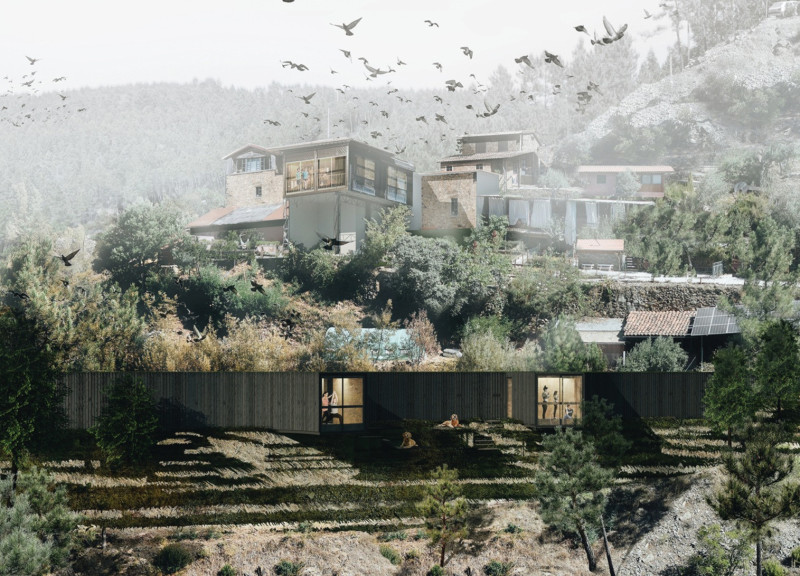5 key facts about this project
"A Curva do Moses" is set in a sloped landscape filled with rich vegetation and scattered buildings. The focus of the design is to create a retreat that supports activities such as meditation and therapy. The cabins are thoughtfully arranged to provide privacy while maintaining a strong connection to the natural surroundings. Through curving forms and strategic placement, the design integrates with the site’s topography, enhancing both functionality and user experience.
Key Features
The design includes a podium that stabilizes the slope, making it possible to create usable space where the landscape might have been challenging. This approach does not harm the existing vegetation, allowing nature to coexist with the structures. Each cabin is placed so that people can enjoy private moments while also being part of a larger community space.
Sustainability and Functionality
Sustainability plays an important role in this retreat. The project features a rainwater collection system that supports irrigation for surrounding plants. Each cabin is designed to generate its own energy with solar solutions that blend into the overall design. Careful planning provides private areas for storage and handwashing, plus optional toilet facilities to ensure comfort for users.
Spatial Dynamics
Natural ventilation is prioritized with openings placed thoughtfully to enhance airflow throughout the interiors. Large windows allow ample light into the cabins and create connections to outdoor spaces. The outdoor platforms for yoga and other activities are thoughtfully integrated into the landscape, inviting users to engage with nature directly.
Unique Design Elements
A curved wooden wall serves as a prominent feature that brings continuity to the site. It guides visitors along the pathways while creating private areas for reflection. The cabins are built as prefabricated units, which simplifies construction and allows for adaptability within the scenic valley. Each detail is crafted to support a calming atmosphere essential for meditation and therapy.





















































